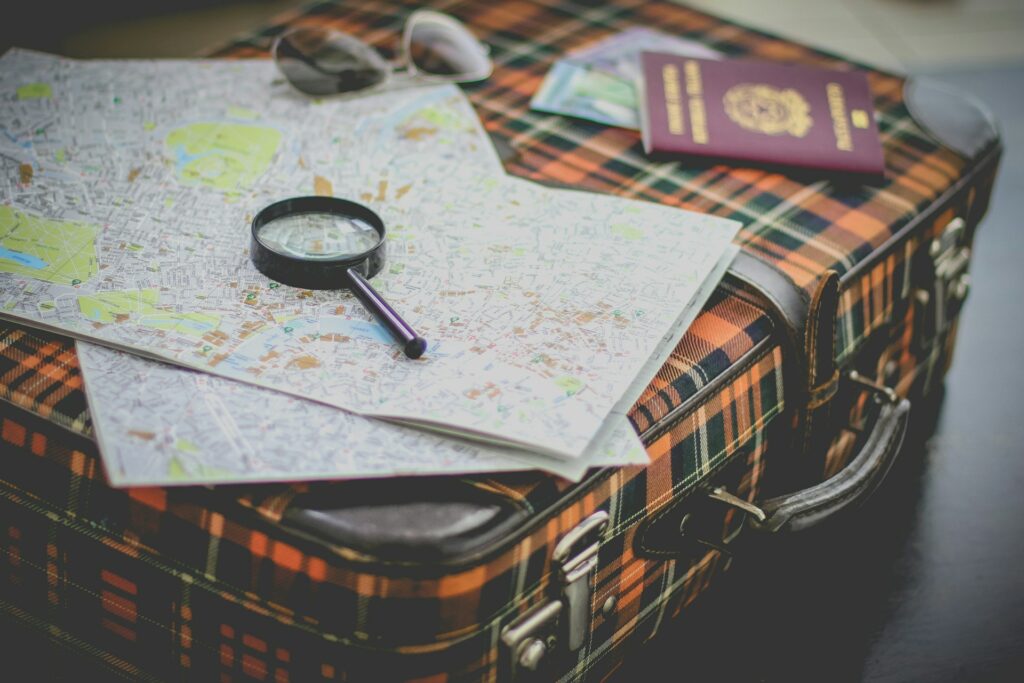The Packing Checklist for Studying Abroad

The Packing Checklist for Studying Abroad
The process of getting ready to study in another nation is a thrilling adventure; nevertheless, packing for a prolonged stay in a different country can be difficult. You need to make sure that you carry everything that is necessary without making your suitcase too heavy. Through careful preparation and organization, you can make the process significantly less difficult and guarantee that you are prepared to begin your life in your new residence.
1. Begin with the most important documents.
When it comes to packing, the most crucial things to bring are your travel and study paperwork. It is imperative that you possess your passport, student visa, admission letter, travel tickets, and evidence that you have obtained a place to stay. Make sure to store these in a secure folder that is also easily accessible, preferably in your carry-on bag. Additionally, it is a good idea to include copies of all of your critical papers, including information about your university, emergency contacts, and insurance information, in both paper and digital formats respectively. Because of the potential for major complications, it is imperative that you handle these documents with the utmost caution.
2. Exercise sound financial management.
It is critical to have access to money as soon as you arrive at your destination. In addition to your debit or credit cards, you should bring some local cash with you for the first few days of your trip. Notify your bank about your plans to travel in order to avoid any problems with using your card while you are away. If you have any documents pertaining to financial aid or scholarships, you should also save copies of those. Just before you travel, you might want to think about downloading a budgeting software. This will assist you in managing your expenditures while you are adjusting to the new cost of living.
3. Make sure you bring the appropriate clothing.
It is often the case that less is more when it comes to clothing. Your focus should be on pieces that are comfortable, versatile, and can be mixed and matched. You should bring one or two formal outfits for presentations or events, as well as outerwear that is suited for the temperature, as well as casual ensembles for everyday use. Bring layers of clothing, like as sweaters and coats, if you are going to a place that is chilly; if you are going to an area that is warmer, consider fabrics that are lightweight and breathable. Having shoes that are comfortable is essential, particularly when you are going to be strolling around campus or exploring your new city. You always have the option to purchase additional clothing once you have settled in.
4. Remember to include essential personal items and toiletries.
It is not necessary for you to bring a whole year’s worth of toiletries; you should bring just enough to last you through the first few weeks. It is important to bring in your toothbrush, toothpaste, shampoo, soap, deodorant, and any other skincare products that you use on a regular basis. Additionally, make sure to have a copy of your doctor’s letter and any prescription prescriptions you need to bring with you in case customs asks for verification. During your first few weeks in a foreign country, it may also be helpful to bring along a small first-aid kit that contains disinfectant, bandages, and pain relievers.
5. Get your electronic devices ready.
It is impossible to communicate or learn without the use of electronic devices. You should bring your laptop, your phone, chargers, and the appropriate power converter for the location you will be moving to. In situations where you are traveling or studying, having a set of headphones or earphones would be really helpful. Installing useful applications such as translation tools, transportation guides, and communication platforms such as WhatsApp or Zoom should be done before you travel. These simple actions will make the transition easier for you once you get at your destination.
6. Essentials for Academic and Studying Purposes
You should make sure to bring a few things with you for your study, such as a calendar, pens, and notebooks. The use of a robust backpack or laptop bag can assist you in maintaining organization and will safeguard your personal devices. When you arrive at your university, it is best to purchase hefty textbooks or other course materials. This is because many institutions offer digital copies of the textbooks or on-campus retailers that carry the most recent editions.
7. Make sure that your living space is comfortable.
Bedsheets, pillowcases, and towels are some of the essential materials that you could require for your room, depending on the type of lodging that you have reserved. If your university provides these, you wouldn’t need to bring them with you, which would save you space. You can make your new place feel more personal and comfortable by adding a few little decorations, photos, or items that are familiar to you from your previous house.
8 Maintain your health and safety.
At all times, your health need to be your number one concern. Your health insurance card and records of vaccinations should be kept in the same place as your other paperwork. A compact kit containing essentials like as hand sanitizer, masks, and basic medications should be brought along. You should make sure that you are familiar with the local emergency numbers as well as the locations of any nearby hospitals or clinics before you depart.
9. Give It a Facet of Your Own
When you are studying abroad, you may experience feelings of isolation, particularly in the beginning. It is possible to alleviate feelings of homesickness by bringing along tiny items that bring back memories of your home, such as photographs, mementos, or even a favorite snack. If you want to document your experiences and reflect on your trip, keeping a journal is an excellent method to accomplish both.
The conclusion is to travel light and pack smart.
There is no need for you to feel stressed out when you are packing for your study abroad experience. The most important thing is to start planning early, stick to the necessities, and avoid overpacking. Bring only the things that you really require, make sure that your essential documents are safe, and make sure that you leave room in your bag for the things that you will acquire along the journey. Through careful planning and preparation, you will be able to embark on your journey with a sense of organization, self-assurance, and excitement for the possibilities that lie ahead.




